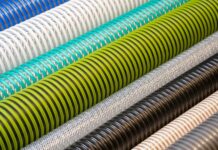“…the first company to benefit from the developed supply capability that helps companies and brand owners towards replacing fossil-based raw materials…”

Initiated first in 2016, the collaboration between IKEA and Neste, to utilize renewable residue and waste raw materials, such as used cooking oil, as well as sustainably-produced vegetable oils in the production of plastic products is confirmed as reaching a commercial pilot stage in Autumn of this year. It will be the first large-scale production of renewable, bio-based polypropylene plastic globally.
IKEA has issued a number of commitments to reducing their impact on people and the planet while still growing the business. A part of this is the use of more renewable and recycled materials and exploration of new materials for IKEA products and a change all of the plastic used in IKEA products to plastic based on recycled and/or renewable materials by 2030.
By changing to plastic based on renewable material, IKEA can secure the production for the future, and eliminate the need for the extraction of fossil fuel for the purpose of making plastic. One of the ongoing projects towards eliminating virgin fossil-based raw materials in plastic products is a collaboration between IKEA and Neste, which was initiated in 2016. Thanks to this collaboration, IKEA and Neste ( @NesteGlobal ) are now able to turn waste and residue raw materials, such as used cooking oil, as well as sustainable vegetable oils into polypropylene (PP) and polyethylene (PE) plastic. PP and PE plastic are some of the most commonly used plastic.
“This new material represents a significant step towards a fossil-free future. No one has ever before been able to produce PP plastic from a fossil-free raw material other than on a laboratory scale. Together with Neste, we are ensuring that there is an opportunity to scale up the production of this material”, says Erik Ljungblad, Category Manager Plastic Products at IKEA of Sweden ( @IKEASverige )
Read more: IKEA and Neste confirm production of renewable, bio-based polypropylene plastic.
thumbnail courtesy of biobasedworldnews.com















